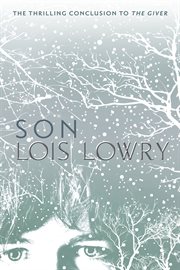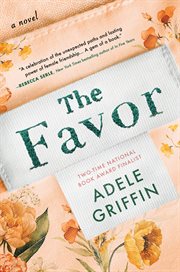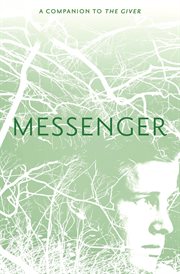Review by New York Times Review
In 1993, when Lois Lowry shocked adult and child sensibilities alike with her Newbery Medal-winning novel "The Giver," J. K. Rowling had not yet begun scribbling magic words on the back of cafe napkins and Stephenie Meyer had just graduated from her (presumably vampire-free) high school. Suzanne Collins had just sold her first teleplays for the gentle, nonviolent world of children's television, and "dystopia" was a 50-cent SAT word unlikely to trip off the average sixth-grade tongue. It's difficult to imagine, in our post-"Hunger Games" world, how unusual and unsettling it was then for a children's book to touch on euthanasia, suicide and murder, to couch it all in a bleak vision of political and emotional oppression and to leave its protagonists ultimate fate undecided. In many ways, Lowry invented the contemporary young adult dystopian novel. Now, nearly 20 years later - and with a glut of fictional oppressive societies leaving many of us with a bit of dystopia fatigue - she's returned with a concluding volume that gloriously rebels against the restraints of the very genre she helped to create. "Son" is being touted as the fourth book in the "Giver" quartet, as Lowry has previously published two loosely related companion novels, "Gathering Blue" (2000) and "Messenger" (2004). With "Son," she's woven these three disparate worlds together, heroes and fates colliding in a final, epic struggle. Fortunately, because this is Lois Lowry, the collision isn't a rehashing of the same dystopian fireworks we've seen too many times before, but a quiet, sorrowful, deeply moving exploration of the powers of empathy and the obligations of love. And fortunately for those of us who haven't read "The Giver" since elementary school, "Son" easily stands on its own. Set in the oppressive community of "The Giver," the book introduces us to 14-year-old Claire, proudly serving in the job of "Vessel." It quickly becomes clear what this vessel is carrying. "They don't want you to see the Product when it comes out of you," Claire's friend explains. "When you birth it." And so in a few efficient sentences, Lowry offers us a society that uses its young as brood mares, treats its newborns as manufactured commodities and denies any emotional connection between mother and child. It would be easy to be lulled by these opening chapters, thinking them merely a supremely wellwritten version of something we've seen before - the generic proper nouns; the placid, unquestioning populace; the spunky protagonist primed to puncture its illusions. But Lowry clearly has little interest in confining herself to a template, and the story soon veers off the expected path and, literally, into the wild. Something goes wrong during the birth. The baby comes out of it healthy, but Claire - at least by her community's standards - does not. Because she now wants what she's not supposed to: Love. Human connection. Her son. The need to see him, to know him, to get him back, infects her every thought. So when the child is stolen from the community, Claire escapes to follow him - and here the book doesn't so much defy expectations as slip through them like water, for escape is a nonissue, a blurry two pages of effortless departure, almost a fait accompli. It's also the last we see of the community whose fate seems beneath Lowry's concern. Instead, we follow Claire's search for her son, and what seemed like a dystopia resolves itself into something of a quest novel - a journey of endurance, courage and the occasional miracle. The all-encompassing maternal urge may not seem the most kid-friendly of subjects, but Claire's desperation to reclaim a missing piece of herself is universal. Readers of any age will be hard-pressed to stop turning the pages in the hope that her son might await her on the next. She's got a whole world to discover before she can find him - a world of colors, seasons and emotions denied her by the community - and as her world opens, the novel's language opens with it. When Claire washes up on a foreign shore, brutal, utilitarian sentences give way to lush descriptions of nature: "The slate gray sea roiled, scraping the narrow strip of sand rhythmically, tugging at the beach grass, digging and sucking loose the rocks at the shore's edge." Its words beating with the tide, the book bursts from black and white to brilliant Technicolor, and Lowry seems to rejoice in it as much as her character does. With their sparse world building and fantastical touches, "The Giver" books have always flirted with allegory. In this last volume, Lowry fully embraces fable: Claire is more archetype than girl, the ur-mother in search of her unnamed son. There's even a nightmarish monster lurking in the wood. What at first seems an odd note of fairy-tale villainy makes sense upon the realization that, unlike its predecessors, "Son" is not the story of a character confronting a damaged human society. It's the story of a humanity battered by inhuman forces: Nature. Age. Maybe even evil. It's love, though, that proves the most dangerous, with its inevitable companions, obligation, sacrifice and loss. Lowry, who lost her own son in 1995, surely understands these dangers all too well, and she writes heart-rendingly about the agony of absence and the injustice of loss. But Lowry's son Grey was an Air Force pilot who died while on active duty, and so Lowry also understands - and imbues her book with - the great capacity of youth to believe in transforming the world, in sacrificing for a greater good, in defeating evil - no matter the cost. Her characters carry their burdens without complaint, embracing any risk to save the ones they love. And as love threatens to destroy them, it's only love that can save them, that particular love of humanity that manifests as empathy. A powerful theme that runs throughout the quartet, empathy here claims center stage. To be able to imagine, or even experience, the inner life of another: In Lowry's world, this is the ultimate redemptive force, the gift that makes us human. In our world, it's the gift this book - and every book - offers us. Robin Wasserman is the author of the Cold Awakening trilogy, "Hacking Harvard" and, most recently, "The Book of Blood and Shadow."
Copyright (c) The New York Times Company [October 14, 2012]
Review by Booklist Review
*Starred Review* Fans of The Giver (1993) and they are legion will find themselves immediately pulled back into the sterile, ordered world where conformity is the only virtue. The focus here is on 14-year-old Claire, and when readers first see her, she is strapped onto a table, masked, about to give birth. As a Birthmother, Claire's job is finished once her baby is born, until the next pregnancy. But unusual circumstances, including a cesarean, get Claire moved from the birthing center to the fish hatchery, and someone forgets to give Claire the pills everyone in the community takes the ones that suppress feelings and individuality. Without that wall, Claire begins to long for her son and finds opportunities to see him. Slowly, readers of the previous titles in the quartet will come to understand that Claire's baby is not unfamiliar to them. When the boy disappears, Claire decides, against all odds, that she must find him. That brings her to a seaside community where she strengthens body, mind, and spirit to continue her search. One of The Giver's strengths was the unvarnished writing style that reflected the book's ordered community. Lowry captures that same feeling again and turns it inside out as Claire moves through two more distinct settings, both haunting in their own right. Though her time at the seaside village may seem long to some readers (and it is more than 10 years), the vividness of the descriptions from the hardness of the rock to the roiling of the water makes up for the length. Lowry is one of those rare writers who can craft stories as meaningful as they are enticing. Once again she provides plenty of weighty matters for readers to think about: What is important in life? What are you willing to trade for your desires? And the conflict that has been going on since stories began: Who is able to conquer evil? Don't miss our feature, Another Look at Lois Lowry's The Giver Quartet. --Cooper, Ilene Copyright 2010 Booklist
From Booklist, Copyright (c) American Library Association. Used with permission.
Review by Publisher's Weekly Review
Drawing characters and themes from The Giver and its companions, Gathering Blue and Messenger, Lowry concludes her Giver Quartet nearly 20 years after the Newbery Medal-winning first book was published. The story is divided into three sections, and in the completely absorbing opening, Lowry transports readers back to the horrifying world from which Jonas came. The spotlight is on 14-year-old Claire, a Birthmother who is given an emergency Caesarean to save "the Product." The child survives, but Claire is coldly "decertified" and sent to work elsewhere, mystified as to what happened to her and her baby. Those familiar with The Giver will feel the pieces fall into place as Claire figures out which Product is hers and tracks his progress. Part two details Claire's decade-long struggle to remember who she is, and it suffers slightly from having a main character afflicted with a well-worn plot device (amnesia); the final third reunites characters from all three previous novels for a showdown with evil incarnate. If the latter sections don't quite keep up with the thrilling revelations of the first, Lowry still ties together these stories in a wholly satisfying way. Ages 12-up. (Oct.) (c) Copyright PWxyz, LLC. All rights reserved.
(c) Copyright PWxyz, LLC. All rights reserved
Review by School Library Journal Review
Gr 6 Up-This final volume in the sequence of books that began with The Giver (Houghton Mifflin, 1993) returns for the first time to the regimented community of that book. Lowry recounts the events through the eyes of a new character, Claire, a Birthmother. When her first "Production" goes wrong, she endures a cesarean delivery and is summarily reassigned to the fish hatchery. But she can never let go of the idea of the son to whom she has given birth (Product #36) and manages to track him down in visits to the Nurturing Center. The baby turns out to be Gabe, the infant taken in by Jonas's family in The Giver. Claire meets Jonas's father and is able to maintain a tenuous relationship with her child. When Gabe is set to be "released" rather than permanently assigned to a family, things look dire indeed. Claire manages to escape the community on a supply boat headed "Elsewhere." Washed up on a beach after a storm, she has no memory of who she is or from whence she came. With the help of the villagers who have taken her in, she slowly regains some bits of her past and sets out to find her son. A harrowing encounter with the Trademaster leads her finally to Gabe, whom she finds in the village introduced in Messenger, along with Jonas, who is now appropriately the scholar/librarian of the community. Infinitely more satisfying than the previous installment, Son is a tender conclusion to this memorable story, and definitely the best of the books in this sequence since The Giver itself.-Tim Wadham, Children's Literature Consultant, Fenton, MO (c) Copyright 2012. Library Journals LLC, a wholly owned subsidiary of Media Source, Inc. No redistribution permitted.
(c) Copyright Library Journals LLC, a wholly owned subsidiary of Media Source, Inc. No redistribution permitted.
Review by Horn Book Review
Lowry begins Son by returning to the rigid, passionless community of The Giver (rev. 7/93), this time pursuing the story of Claire, the young woman who gave birth to Gabriel, the baby Jonas rescues in The Giver. Claires son is taken from her at birth, as is the way of this institutional culture, and nurtured in the communal nursery. Against the rules, Claire visits him regularly until, one night, baby and Jonas disappear. That same night, Claire also departs in a state of confused turmoil, eventually washing up on the beach of an isolated coastal village, having lost her memory. Her quest to regain it and find her son leads her to Jonas, Kira, and Gabriel of Lowrys earlier related books. Straightforward sentences; simple, accessible language; and a linear plot govern this novel that emphasizes the dangers of conformity and overvaluation of a "rational" life. Lowry foregoes dramatic suspense for measured tones and deliberate sequences of action -- a style that suits the bland, antiseptic environment of Claires and Jonass origins. A final confrontation (between Gabe and Trademaster) replays the battle against evil that seemed to have been vanquished by Mattys Christ-like sacrifice at the end of Messenger (rev. 5/04). Lengthy and somewhat mechanical in its plot, the strength of this novel is its compassionate portrait of a mothers commitment to her lost child. The book will be of greatest interest to those already hooked on Lowrys series. deirdre f. baker (c) Copyright 2012. The Horn Book, Inc., a wholly owned subsidiary of Media Source, Inc. No redistribution permitted.
(c) Copyright The Horn Book, Inc., a wholly owned subsidiary of Media Source, Inc. No redistribution permitted.
Review by Kirkus Book Review
In this long-awaited finale to the Giver Quartet, a young mother from a dystopian community searches for her son and sacrifices everything to find him living in a more humane society with characters from The Giver (1993), Gathering Blue (2000) and Messenger (2004). A designated Birthmother, 14-year-old Claire has no contact with her baby Gabe until she surreptitiously bonds with him in the community Nurturing Center. From detailed descriptions of the sterile, emotionally repressed community, it's clear Lowry has returned to the time and place of The Giver, and Claire is Jonas' contemporary. When Jonas flees with Gabe, Claire follows. She later surfaces with amnesia in a remote village beneath a cliff. After living for years with Alys, a childless healer, Claire's memory returns. Intent on finding Gabe, she single-mindedly scales the cliff, encounters the sinister Trademaster and exchanges her youth for his help in finding her child, now living in the same village as middle-aged Jonas and his wife Kira. Elderly and failing, Claire reveals her identity to Gabe, who must use his unique talent to save the village. Written with powerful, moving simplicity, Claire's story stands on its own, but as the final volume in this iconic quartet, it holistically reunites characters, reprises provocative socio-political themes, and offers a transcending message of tolerance and hope. Bravo! (Fiction. 12 up)]] Copyright Kirkus Reviews, used with permission.
Copyright (c) Kirkus Reviews, used with permission.



